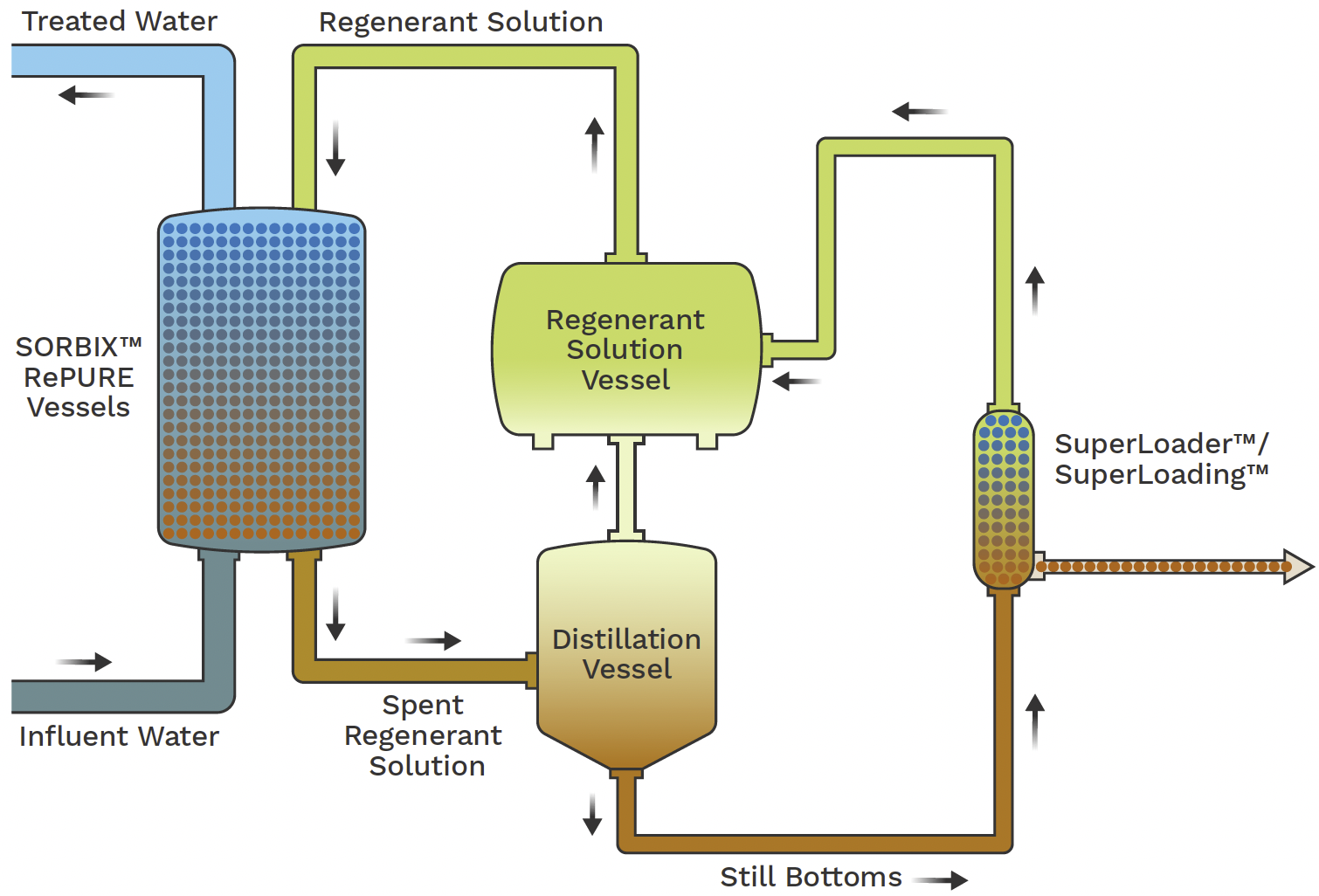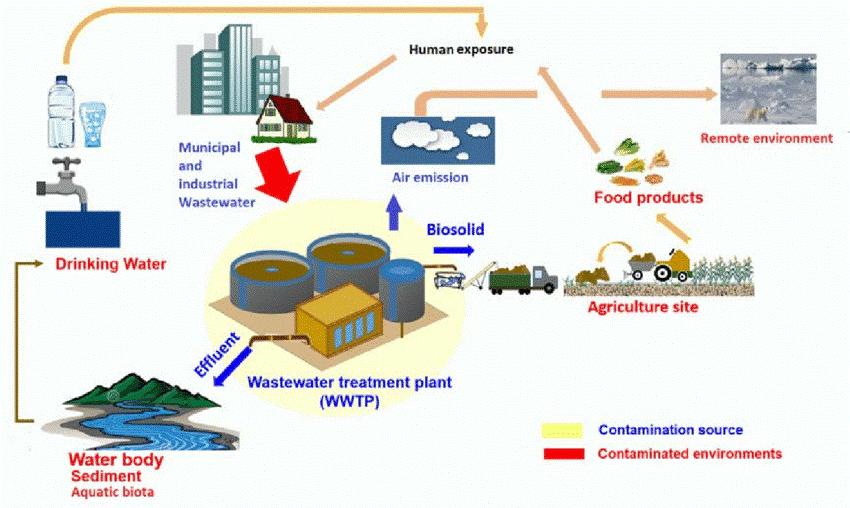Exactly How PFAS Therapy Makes Certain Tidy and Sustainable Water
The visibility of PFAS, commonly understood as "for life chemicals," positions considerable challenges to water top quality and public health and wellness. The effects of these treatments prolong past immediate health and wellness benefits; they increase crucial inquiries concerning lasting water management approaches that should be dealt with to make certain a resilient future.

Comprehending PFAS Contamination
PFAS, or per- and polyfluoroalkyl compounds, have become a substantial ecological problem because of their extensive occurrence and determination in the setting. These artificial chemicals have been utilized in different commercial applications and customer items, including non-stick kitchenware, water resistant garments, and food product packaging, due to their unique residential properties such as water and grease resistance.
The contamination of dirt and water resources by PFAS happens largely through industrial discharges, firefighting foam use, and seeping from land fills. pfas management. When launched, these substances are immune to deterioration, bring about their build-up in the setting. This perseverance increases important issues, as PFAS can travel cross countries with groundwater and surface area water supply, impacting alcohol consumption water products and ecological communities

Wellness Dangers of PFAS
The determination of PFAS in the atmosphere elevates substantial health problems for people subjected to these substances. Study has linked PFAS exposure to various negative health effects, consisting of immune system disorder, liver damage, and enhanced risk of particular cancers.
The ubiquity of PFAS in consumer products, such as non-stick kitchenware, water-repellent fabrics, and food product packaging, further intensifies the danger of exposure. Consuming alcohol water contaminated with PFAS is a considerable concern, as these chemicals can seep into groundwater resources. Susceptible populations, consisting of children and those living near commercial sites, may encounter intense risks due to their establishing systems and prospective for higher direct exposure degrees.
As recognition of these wellness dangers proceeds to grow, regulative companies are starting to develop standards for PFAS degrees in alcohol consumption water. Public wellness campaigns are necessary to mitigate direct exposure and secure communities from the long-term results of these harmful materials.

Innovative Therapy Technologies
How can we properly take on the obstacles presented by PFAS contamination in water resources? Innovative therapy modern technologies are becoming critical services in the mission for clean water. These approaches focus on the removal or devastation of per- and polyfluoroalkyl materials (PFAS), which are notorious for their perseverance in the environment.
One promising strategy is adsorption using innovative materials, such as activated carbon and ion exchange materials. These materials have revealed effectiveness in recording PFAS molecules from water. An additional notable technology is membrane purification, which utilizes nanofiltration and turn around osmosis to separate contaminants at the molecular degree, thus supplying an obstacle against PFAS.
In addition, progressed oxidation processes (AOPs) utilize solid oxidants to damage down PFAS substances into safe by-products. This approach is particularly reliable for treating highly polluted water resources. Bioremediation strategies, employing details bacteria, are also being checked out to degrade PFAS.
As study continues, hybrid systems that integrate numerous modern technologies might offer enhanced performance, attending to the complexities of PFAS contamination. The advancement and execution of these cutting-edge treatment modern technologies are essential actions toward making sure the security and sustainability of our water sources.
Advantages of Efficient PFAS Therapy
Effectively dealing with PFAS contamination in water resources considerably boosts public health and wellness and ecological security. PFAS, usually described as "for life chemicals," are resistant to deterioration and can collect in the body, bring about significant wellness threats such as cancer cells, liver damages, and immune system disorder. By executing reliable treatment approaches, communities can decrease direct exposure to these hazardous compounds, ultimately enhancing the health and wellness results of their populations.
Additionally, successful PFAS therapy adds to the conservation of regional ecosystems. Polluted water can adversely affect aquatic life and interrupt the delicate equilibrium of local environments. By making sure tidy water, therapy procedures secure biodiversity and maintain environmental stability.
In addition, efficient PFAS removal can promote public confidence in water quality. When communities read the article are guaranteed that their drinking water is without damaging pollutants, it advertises a sense of safety and well-being. This trust is important for community involvement and support for ongoing water monitoring efforts.
Future of Water Sustainability
Amidst expanding worries regarding water quality and scarcity, the future of water sustainability rests on ingenious approaches and collaborative efforts. As areas deal with the impending risks of contaminants like PFAS, the advancement of advanced treatment innovations is necessary. These modern technologies not just concentrate on the removal of hazardous substances however also promote the reuse and recycling of water, therefore decreasing total need.
Furthermore, reliable water governance plays a critical role in making certain sustainable techniques. Policymakers must integrate clinical research with regulatory frameworks to establish clear standards for water use and treatment. Stakeholder engagement, including local areas and industries, cultivates a sense of common obligation and encourages advice lasting methods across numerous industries.
Financial investment in framework is additionally important; updating aging systems to integrate modern filtration and filtration approaches can dramatically boost water top quality. In addition, welcoming environment-friendly modern technologies, such as natural filtering systems, can give environment-friendly services.
Inevitably, the future of water sustainability depends on an all natural approach that incorporates modern technology, plan, and community involvement. By prioritizing these aspects, we can protect our water sources for generations ahead, ensuring clean and sustainable water for all.
Verdict
In final thought, the reliable treatment of PFAS is important for making sure tidy and sustainable water. Inevitably, durable PFAS therapy methods contribute to lasting durability in water administration, fostering you could look here public trust fund in water top quality and promoting lasting practices.
Comments on “Effective PFAS Waste Management in Industrial Environments”